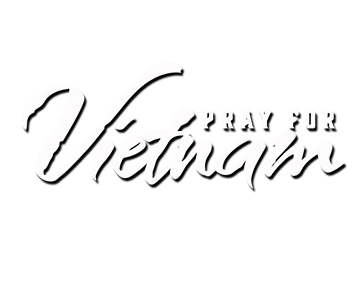Throughout Vietnam, the fear and worship of spirits grips the hearts of many. Mirrors or strips of cloth above doorways ward off evil spirits. Sacrifices and rituals invite the spirits of trees, houses, harvests, etc. to bless the people. This is called animism, or the belief that spirits occupy everything from animals to nature to man-made objects. It is an old practice in Vietnam that keeps many people in bondage.
Here is a little more information on animism to help you better understand how to pray for those whose lives revolve around spirit worship:
What is animism?
Animism is a belief system that centers on the attribution of souls to things that are not human, such as plants, inanimate objects, nature, animals, etc. It is a belief in supernatural powers that control the material universe.
Animism is different from most organized religions in that it does not have an institution (Example: church, mosque, temple) nor does it have a specific doctrine. Typically animism is heavily influenced by geography, culture, or environment and has been woven in to other belief systems.
What do animists typically believe?
Animists believe that everything has a spirit, thus they worship everything from nature to animals to inanimate objects. They believe that the spiritual and physical world have a deep connection and that spirits are capable of helping or harming human interests.
Many animists also hold the belief that deceased loved ones watch over them from the spirit world. Ancestor worship comes from this belief as a means of honoring and communicating with ancestors.
How do people practice animism?
Practicing animism varies by geographical region and people group. However, many animists perform similar rituals in order to worship and appease the spirits around them. Many animistic rituals are group activities performed outside, often led by a shaman, witch doctor, or medicine man. Sometimes these rituals include the whole village. Rituals performed inside the home include ancestor worship at the family altars.
Animists offer sacrifices and prayers. They dance or perform other rituals in hopes to receive blessings on their lives, including their crops, fertility, health, family, and more. They also worship spirits so that the spirits will not harm them or their family members.
Also prevalent in places where animism is practiced are objects believed to ward off evil. This could be a charm around someone’s neck, material hung on doorways, or strings tied around waists or wrists. These superstitious rituals vary all over the world.
What about Vietnamese people?
A majority of the people groups in Vietnam practice animism, especially in rural areas. With lives that revolve around agriculture, many minority people groups in Vietnam perform yearly or even monthly rituals to requests blessings from the gods they believe control their planting and harvesting. Charms and other objects thought to ward off evil are also prevalent among people living in rural areas.
Perhaps the biggest sign of animism in Vietnam is that of ancestor worship. Even those Vietnamese people who follow Buddhism or other religions often worship and honor their deceased loved ones. Though Vietnamese people claim a variety of religions, the prevailing religious practice among them is ancestor worship.
How can I pray for Vietnamese people who practice animism?
Here are a few ways you can pray:
- Pray for Vietnamese people who practice ancestor worship to learn about Jesus who rose from the dead and offers them true eternal life.
- Pray for Vietnamese minority peoples in rural areas to know the Creator God who made everything and is in control of their planting and harvesting.
- Ask God to strengthen Vietnamese Christians as they must continually refuse to worship their ancestors in order to follow Jesus.
__________
Throughout the month of May 2015, we are asking individuals, families, groups of friends, small groups, and churches to join with us and commit to pray for the peoples of Vietnam. We will be posting stories and sharing ways to pray daily through the blog, Facebook, and Twitter. You can also download a prayer guide and other resources here.

